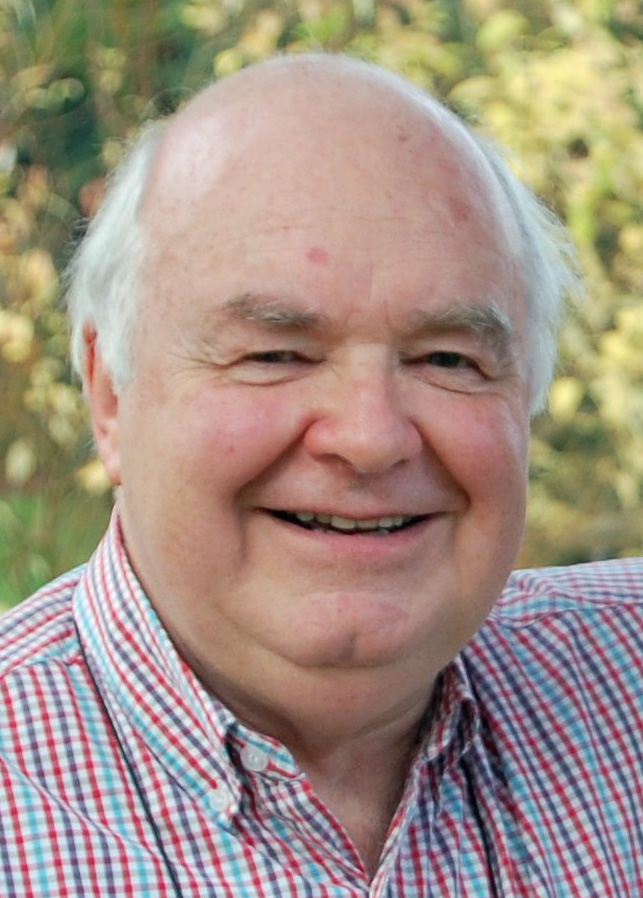Mathematician, religious scholar John Lennox to meld science, religion in Veritas Forum “˜Christianity and the Tooth Fairy’

John Lennox
The Veritas Forum
Today, 7:30 p.m.
Korn Convocation C314
Radio
John Lennox discusses science and faith at
dailybruin.com/radio
By Alexia Boyarsky
April 6, 2011 2:38 a.m.
When scientists design an experiment that has a hypothesis and expected results, they base the experiment on the assumption of an organized universe.
However, many modern scientists also view their fields as being devoid of religion or faith.
For mathematician and religious scholar John Lennox, this is a modern paradox.
“If you’re going to do science, you’ve got to start by assuming that … there are laws and order to be discovered,” Lennox said. “If you believe in a creator, you expect there to be law coming from an intelligent creator. It seems to me that the two things fit together.”
Lennox, who teaches at the University of Oxford, will be questioned on the relationship between science, religion and the truth behind God at today’s Veritas Forum, called “Christianity and the Tooth Fairy.”
The Veritas Forum, which was started at Harvard in 1992 and came to UCLA in 2001, is aimed at allowing students to talk about religion in an open setting.
Lennox, who was born and raised in Northern Ireland, was raised in a devout Christian family, albeit one that encouraged him to think outside of the religion and pursue his own meaning of truth, he said.
“(My parents) allowed me to think very widely, and I’ve always been interested in the bigger questions, and been aware that I come from a Christian background,” he said.
Lennox later attended Cambridge University, where he earned a doctorate in mathematics.
While at Cambridge, Lennox attended the last series of lectures given by author and religious scholar C. S. Lewis.
A lifelong fan of Lewis’ work, Lennox said that his father introduced him to Lewis’ writing when he was younger. It has remained with him ever since.
“The clarity of his logic appealed to my mathematical mind,” he said. “The memory (of him lecturing) is a very vivid memory, but it is the impact of his writing that has stayed with me and still does. I still read his stuff.”
The forum’s title reflects how, similar to the tooth fairy or other mythical creatures, people know about God and Christianity, but the existence of each is difficult to prove empirically, said Sung Yeo, the forum’s presenter coordinator.
“The forum will center around the question of why is Christianity true, when we think that Zeus or Thor aren’t,” Yeo said.
The format will follow a question-and-answer style. UCLA law Professor Emeritus Daniel Lowenstein will lead a discussion with Lennox, and audience members will have an opportunity to pitch in. The professor’s questions, which have not been shared with Lennox, will drive the discussion, Yeo said.
Lowenstein said because of his lack of expertise in religion, he believes he will ask questions that will clarify Lennox’s beliefs to non-religious members of the audience.
“I’m not somebody with particular expertise, but I gather that they didn’t want two experts talking about religion,” he said. “They wanted someone more naive to bring out Professor Lennox’s beliefs.”
Lowenstein, who was raised in a secular Jewish household but is now agnostic, said that while there is no clear connection between law and religion, his desire to find “what is true, what is beautiful and what is good” drives his interest in religion.
Both Lennox and Lowenstein said religion should be an important subject for universities because so many of the humanities topics that are learned in college are profoundly influenced by the Christian faith.
“You can’t deny that first Judaism and then Christianity are centrally involved in how the West has thought about the truth, the good and the beautiful,” Lowenstein said. “You can’t begin to understand Western history and civilization without having some idea of religious beliefs.”
Although he said he is not an expert on religion, Lowenstein attends a Bible study group on a weekly basis to expand his knowledge of the scriptures in relation to literature and philosophy.
“Science generally doesn’t tell us much about what is good or what is beautiful,” Lowenstein said. “A university must have science as a core, but it also must have various other elements which provide meaning.”
With reports by Jeffrey Scott, Radio reporter.

